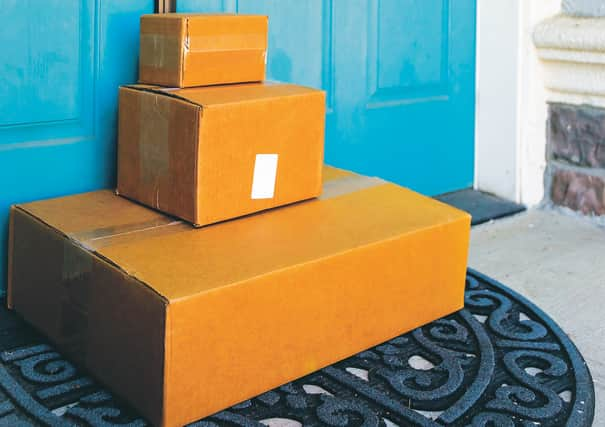Shell-shocked nation forced to buy into new era of consumerism


Also evidence is now emerging that some of the habits formed during coronavirus crisis may last way beyond lockdown.
Here’s a look at how things have altered and the longer term impact
How has cash use changed?
Advertisement
Hide AdAdvertisement
Hide AdCash use had already been in a slow decline, but now the number of cash withdrawals made from ATMs has fallen sharply.
According to figures from ATM network Link, transactions recently fell by 60 per cent compared with a year earlier. Link’s consumer research suggests three-quarters (75 per cent) of us are using less cash, with more than half (58 per cent) using cash a lot less.
But a significant number still rely heavily on cash, with 23 per cent using the same amount of cash or more. One in seven (14 per cent) people also say they’re keeping more cash at home in case of emergencies.
How have online shopping habits changed?
More than 430 million deliveries took place across the UK in just the first month of the lockdown, according to estimates from Nationwide Building Society. Its consumer research found people received an average of eight deliveries over the first month of the stricter social distancing measures.
This includes supermarket deliveries and other online shopping, food boxes and takeaway meals, medicines and drop-offs from family members, friends and neighbours. Pet owners have been receiving around six home deliveries a month for their animals.
Local shops are also playing a vital part in keeping their communities going. The Association of Convenience Stores says around two-thirds of local shops now offer some form of delivery service – up from just over one in 10 in 2019.
What’s the impact on the grocery sector?
Market research agency Mintel predicts the online grocery market is set to grow by a third (33 per cent) this year, to reach an estimated value of £16.8 billion, and to £17.9 billion by 2024.
Mintel found many people are trying to limit the time they spend in-store and nearly one in 10 (9 per cent) are using “click-and-collect” services more.
What about other sectors?
Advertisement
Hide AdAdvertisement
Hide AdNationwide Building Society has analysed its customers’ current account spending, comparing the four weeks leading up to 12 April with the same period a year earlier.
It found that spending on the restaurant sector was down by 70 per cent. With fewer occasions to dress to impress, spending on clothing was down by 50 per cent. But spending on hardware stores was up by a third (33 per cent) as people spent more time at home and in the garden.
People have also been making the most of entertainment services from home. TopCashback.co.uk found two in five have signed up to new subscriptions, such as TV and music streaming, fitness regimes and product deliveries, since the coronavirus outbreak started.
Will we see more permanent changes in shopping habits?
According to Nationwide’s research, nearly two-thirds (62 per cent) of people say the way they spend has changed – and around a third (32 per cent) will be more mindful of their purchases in future.
With many households facing uncertain incomes, 31 per cent will look to cut back on non-essentials. A quarter (25 per cent) pledge to waste less food.
Mark Nalder, Nationwide’s head of payments strategy and service, says: “While the number of shopping deliveries has significantly increased since lockdown, overall spend has reduced.”
He says it will be interesting to see any changes people make, “especially as many say they are going to pay closer attention to their finances in future, be less wasteful and cut back on non-essential purchases”.
Comments
Want to join the conversation? Please or to comment on this article.